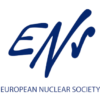Westinghouse Awarded New Grants From UK Nuclear Fuel Fund
Westinghouse Electric Company (ENS Corporate Member) announced that the UK Government’s Nuclear Fuel Fund has awarded three grants to upgrade and expand the Springfields Fuel Fabrication Facility to support the United Kingdom’s next-generation nuclear reactors.
The three awards totalling £10.5 million (€12.2 million) aim to support the future and the resilience of the UK nuclear fuel industry by developing more variants of light water reactor fuels, including for the AP1000 reactor and the AP300 small modular reactor.
The funding also supports the potential production of High Enriched Low Assay Uranium-based (HALEU) Advanced Nuclear Fuels for the UK’s new Generation III and IV fission reactors.
Furthermore, Westinghouse will partner with Terrestrial Energy and the National Nuclear Laboratory to pilot the supply of enriched Uranium Tetrafluoride (UF4) and molten salt fuel for use in Terrestrial’s Integral Molten Salt Reactor.
Nuclear power is at the heart of our plan to deliver cleaner, more secure home-grown energy to the UK, boosting our energy security and will provide highly skilled jobs to grow our economy
said Andrew Bowie, UK Minister for Nuclear.
Read the full Westinghouse Press Release.
Last week, the UK Government officially launched its flagship body Great British Nuclear (GBN).
The launch of GBN can support the UK Government’s ambition to provide up to a quarter of the UK’s electricity from homegrown nuclear energy by 2050 and achieve among the cheapest wholesale electricity prices in Europe, whilst supporting jobs across the country.
The grant funding package announced totals up to £157 million (€181 million).
The Nuclear Institute (ENS Member Society) enthusiastically welcomed the announcement:
I’m pleased to see the UK is back in action on Nuclear. It’s vital we realise new nuclear projects for electricity generation if we have any chance of reaching 24GW nuclear capacity by 2050, as well as capitalising on the big export opportunity of SMRs.
said Jasbir Sidhu, President of the Nuclear Institute.
